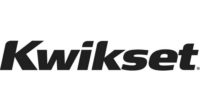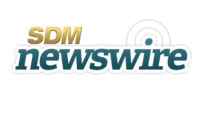Going it alone in business can be tough. Fortunately, security dealers have a wide range of programs available to them that can help support their business operations. One option is formal dealer programs, typically operated by companies that will purchase dealer accounts in exchange for getting all or part of the recurring monthly revenue from those accounts. Equipment manufacturers also offer a range of support programs for established dealers that use the manufacturer’s product. There are many different approaches to dealer programs and SDM will be updating the various programs throughout the year. In this article, SDM talks to some dealers about why they opted to participate in a dealer program and how it has benefited their businesses.
A HEAD START
When the owners of Boise, Idaho-based Tym Security founded the company about 18 months ago, they opted not to go it alone. Instead, the company joined the Security Networks dealer program, with the goal of selling some accounts to Security Networks.
“Going with an established company gave us peace of mind,” comments Scott Montgomery, Tym Security vice president.
When Tym sells an account to Security Networks, the dealer gets a flat fee up front, as well as a portion of the monthly recurring revenue. Tym’s owners like this approach because it brings cash into the company sooner, enabling it to grow more quickly.
“If we weren’t in the program, we would be limited in how many customers we could take on per year because of cash flow,” Montgomery explains.
As a startup company, Tym also liked the fact that Security Networks operates a Five Diamond central station and has an A-plus rating with the Better Business Bureau. Customers are impressed with credentials such as that. As Montgomery notes, “It would take years for us to establish that on our own.”
MARKETING SUPPORT
Unlike Tym Security, Annapolis, Md.-based Chesapeake Systems Service operated alone for a number of years before joining the First Action dealer program, now known as Dynamark, a few years ago. Although that program also offers dealers the option of selling accounts, that’s not why Chesapeake Systems joined the program.
“We’re in the program for product and dealer support,” explains Jack Rainey, general manager of Chesapeake Systems Service.
The company joined the program after learning that, among other things, Dynamark/ First Action offered services to help dealers design and quote jobs, volume discounts on key products, and a range of marketing support options. Dynamark has helped Chesapeake Systems get funding for marketing initiatives through manufacturers’ cooperative programs. Among other things, the program operator has helped Chesapeake create a new trade show booth and use Google ad words to drive a 54 percent increase in webpage traffic in just one quarter.
“Small business owners don’t have the time or experience to devote to those kinds of things,” Rainey comments.
LEASING & TECHNOLOGY OPTIONS
Marketing support also was what attracted Complete Security Systems of Marlboro, N.J. to the Honeywell Commercial Security Systems dealer program.
Complete Security Systems, which has been around for more than 25 years, joined the CSS program three years ago at the same time that it opted to use Honeywell to replace a previous equipment supplier. The appeal of the program, was “the support piece — networking, training and marketing,” notes Complete Security Systems president Chris Mosley.
Mosley likes having the opportunity to exchange business ideas with other CSS dealers. Honeywell CSS also has helped Mosley’s company with search engine optimization, sales training and establishing a leasing program with a third-party supplier that regularly works with Honeywell CSS dealers.
“In a down economy, more people are taking advantage of leasing,” says Mosley, who was able to avoid the time-consuming task of lining up a leasing provider on his own.
Complete Security Systems also likes some of the new technology it has been able to introduce as a result of being in the program. This includes two new applications that are now available through the Complete Security Systems site — an automatic bill-paying application and an application that lets customers securely review images from their remote video cameras.
Although declining to provide specific numbers, Mosley says Complete Security has seen a significant revenue uptick since joining CSS, which he attributes at least in part to the company’s participation in the program.
Editor’s Note: The dealer programs profiled in this article represent just a few of the many available programs in which dealers can participate. If you operate an authorized dealer program and wish to update SDM’s readers about it, please contact Laura Stepanek at (847) 405-4027 or at stepanekl@bnpmedia.com.
| First Alert Focuses on Lead Generation, Total Connect Video |
|
Honeywell’s First Alert Professional continues to recruit “selected” new dealers to add to what First Alert Professional president Joe Sausa calls a “network rather than a dealer program.” An important aspect of the network, which focuses on the residential and small business market, is the ability of participants to get together regularly to generate ideas about how to grow their businesses, Sausa says.
|
| Security Networks Goes Nationwide |
|
Security Networks, which previously operated a regional dealer program, expanded its program nationwide last year, notes Gary Franklyn, vice president of business development for the company.
|
| Diebold Adds Training & Service Options |
|
Diebold, which introduced its dealer program just 18 months ago, added new training and service options in 2010. On behalf of its dealers, the company negotiated a special arrangement with Skillsoft, which offers a wide range of online training programs — from business administration to technical training, including training aimed at obtaining Microsoft certifications. Dealers pay a flat fee for unlimited training for a year.
|
| Central Security Group-Nationwide Plans Aggressive Expansion |
|
Central Security Group-Nationwide received a cash infusion in 2010 from a private equity firm.
|
| First Action Is Now Dynamark |
|
First Action Security Team has re-acquired the Dynamark name, which it now uses for its dealer program.
|
| Honeywell CSS Works Closely with A&E Community and AHJs |
|
Honeywell’s Commercial Security Systems program, which targets dealers that focus on the business market, focused heavily on demand generation in 2010, observes CSS president John Lorenty.
|











